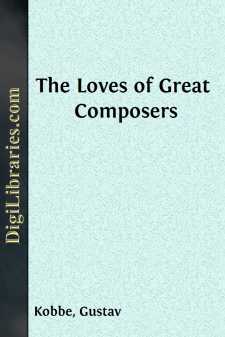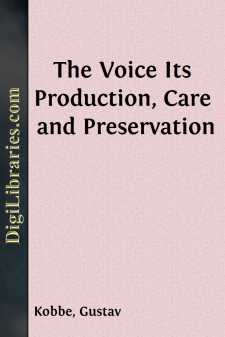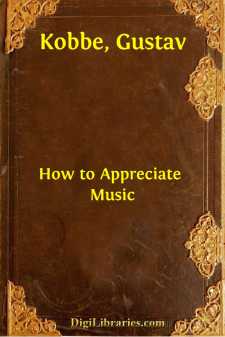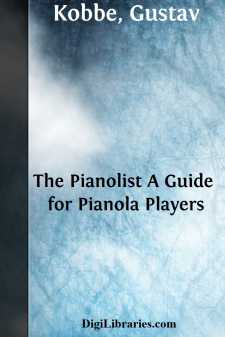Categories
- Antiques & Collectibles 13
- Architecture 36
- Art 48
- Bibles 22
- Biography & Autobiography 813
- Body, Mind & Spirit 142
- Business & Economics 28
- Children's Books 15
- Children's Fiction 12
- Computers 4
- Cooking 94
- Crafts & Hobbies 4
- Drama 346
- Education 46
- Family & Relationships 57
- Fiction 11828
- Games 19
- Gardening 17
- Health & Fitness 34
- History 1377
- House & Home 1
- Humor 147
- Juvenile Fiction 1873
- Juvenile Nonfiction 202
- Language Arts & Disciplines 88
- Law 16
- Literary Collections 686
- Literary Criticism 179
- Mathematics 13
- Medical 41
- Music 40
- Nature 179
- Non-Classifiable 1768
- Performing Arts 7
- Periodicals 1453
- Philosophy 64
- Photography 2
- Poetry 896
- Political Science 203
- Psychology 42
- Reference 154
- Religion 513
- Science 126
- Self-Help 84
- Social Science 81
- Sports & Recreation 34
- Study Aids 3
- Technology & Engineering 59
- Transportation 23
- Travel 463
- True Crime 29
Gustav Kobbe
Gustav Kobbé was an American music critic and author, best known for his work "The Complete Opera Book," a comprehensive guide to opera that remains a valuable reference today. Born in 1857 in New York City, Kobbé initially studied law but soon turned to writing about music and culture. He contributed to various prominent publications, including "The New York Herald" and "The Century Magazine," where he gained recognition for his insightful critiques. Tragically, Kobbé died in 1918 while sailing in Great South Bay, New York, when his boat was struck by a seaplane.
Author's Books:
Sort by:
by:
Gustav Kobbe
Mozart and His Constance Nearly eight years after Mozart's death his widow, in response to a request from a famous publishing house for relics of the composer, sent, among other Mozartiana, a packet of letters written to her by her husband. In transmitting these she wrote: "Especially characteristic is his great love for me, which breathes through all the letters. Is it not true—those from...
more...
by:
Gustav Kobbe
CHAPTER IA RATIONAL VOCAL METHODSong, so far as voice-production is concerned, is the result of physiological action, and as voice-production is the basis of all song, it follows that a singing method, to be correct, must be based on the correct physiological use of the vocal organs. The physiology of voice-production lies, therefore, at the very foundation of artistic singing. The proper physiological...
more...
by:
Gustav Kobbe
THE PIANOFORTE There must be practically on the part of every one who attends a pianoforte recital some degree of curiosity regarding the instrument itself. Therefore, it seems to me pertinent to institute at the very outset an inquiry into what the pianoforte is and how it became what it isâthe most practical, most expressive and most universal of musical instruments, the instrument of the...
more...
by:
Gustav Kobbe
I. THE TITLE AND PURPOSE OF THIS BOOK My book, "How to Appreciate Music," in the chapter devoted to the pianoforte, contains a paragraph relating to the Pianola and its influence in popularizing music and stimulating musical taste. I confess that before I started that paragraph I was puzzled to know what term to use in designating the instrument I had in mind. "Mechanical piano-player"...
more...





